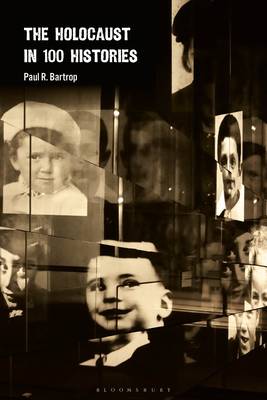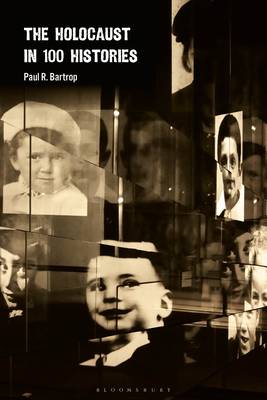
- Afhalen na 1 uur in een winkel met voorraad
- Gratis thuislevering in België vanaf € 30
- Ruim aanbod met 7 miljoen producten
- Afhalen na 1 uur in een winkel met voorraad
- Gratis thuislevering in België vanaf € 30
- Ruim aanbod met 7 miljoen producten
Zoeken
Omschrijving
This chronologically-arranged collection of articles demonstrates the complex and multifaceted nature of the Holocaust. From January 1933 and the ascent to office of Hitler and the Nazi Party in Germany, through to October 1945 and the opening of the International Military Tribunal at Nuremberg, The Holocaust in 100 Histories takes an episodic approach to consider some of the people, ideas, groups, and events that characterized the genocide which unfolded against the backdrop of the Nazi period and the Second World War.
Paul R. Bartrop shines a light on Nazi perpetrators, Righteous Gentiles who helped save Jews during the Holocaust, Jewish resisters, as well as movements, events, and developments during the Third Reich and the war years. The 100 entries included in the book provide both a series of snapshots and a pathway to understanding how the Holocaust was manifested-or defied -during the years between 1933 and 1945. Its structure enables readers to access the Holocaust in or out of sequence, reading individual entries as appropriate, while the book also contains key primary source documents, further reading suggestions and discussion questions designed to prompt debate and further study
Paul R. Bartrop shines a light on Nazi perpetrators, Righteous Gentiles who helped save Jews during the Holocaust, Jewish resisters, as well as movements, events, and developments during the Third Reich and the war years. The 100 entries included in the book provide both a series of snapshots and a pathway to understanding how the Holocaust was manifested-or defied -during the years between 1933 and 1945. Its structure enables readers to access the Holocaust in or out of sequence, reading individual entries as appropriate, while the book also contains key primary source documents, further reading suggestions and discussion questions designed to prompt debate and further study
Specificaties
Betrokkenen
- Auteur(s):
- Uitgeverij:
Inhoud
- Aantal bladzijden:
- 312
- Taal:
- Engels
Eigenschappen
- Productcode (EAN):
- 9781350435117
- Verschijningsdatum:
- 22/08/2024
- Uitvoering:
- Hardcover
- Formaat:
- Genaaid
- Afmetingen:
- 156 mm x 234 mm
- Gewicht:
- 616 g

Alleen bij Standaard Boekhandel
+ 322 punten op je klantenkaart van Standaard Boekhandel
Beoordelingen
We publiceren alleen reviews die voldoen aan de voorwaarden voor reviews. Bekijk onze voorwaarden voor reviews.







